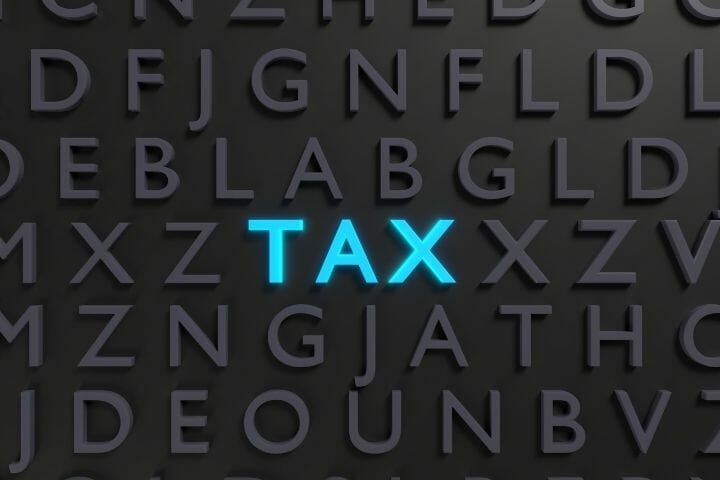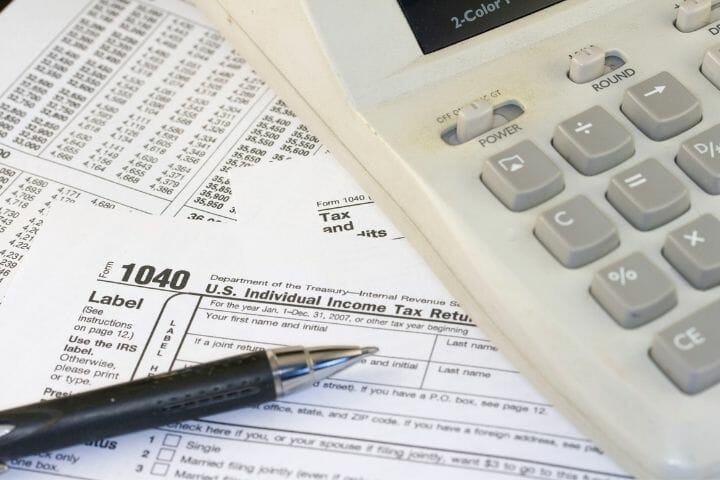Are you worried about the taxes that can decrease your retirement savings? This article below discusses tax planning for seniors, which will help you to preserve your retirement savings.
Contents
You toil hard to save money during your working life to utilize it later in your golden years. With life expectancy inching towards the 80-year mark, that’s a good 15-20 years to plan for! It’s important to preserve the valuable money that you have saved up to the start of your retirement for the long journey ahead.

After retirement, money usually flows from three primary sources, i.e., social security benefits, individual retirement accounts and retirement plans, and funds from savings. Unfortunately, taxes have chances of eating into your available income sources when you withdraw from traditional retirement accounts and leave you with less money to live on.
You need to remember that taxes don’t stop after retirement. So, you need to understand the tax rules applicable to retired persons and the effective strategies you need to develop to reduce your tax obligations.
This article focuses on tax planning for seniors, aiming to provide them with the right guidance to ensure that they do not pay an unduly heavy burden of tax from their limited sources of income.
4 Ways To Reduce Taxes In Retirement?
Some strategies can help you to minimize the taxes after retirement. The methods are described below.
#1. Choose Wisely from Among Tax-Friendly (And Unfriendly) States
When you approach your retirement, you may be thinking about moving to a different state to live in your later years.
You may consider climate, geographical location, friends and relatives, and availability of quality healthcare as consideration factors. But make sure to consider the taxes before moving to a new location. The income tax on social security benefits and retirement account withdrawals varies from one state to another.
There are some states which add a lot of tax while withdrawing money from your retirement savings. So, try to move to states that impose the lowest taxes on Retirees like Alaska, Florida, Nevada, and Washington. These states have no income taxes on retiral benefits. So, your retirement savings are safe in these states.
On the other hand, states like Texas, Iowa, and Wisconsin, and New York have high property taxes and local taxes, which make them unfriendly for residing seniors.

#2. Delay Social Security Benefits
You may have to pay taxes for social security benefits. Well, it depends on your income. You may have to pay income tax on 50 percent of your benefits if your total gross income is $25,000 (that includes social security benefits). If you file your taxes jointly with your partner and your gross income exceeds $32,000, then also you are liable to pay tax. If your income level is below the threshold value, you don’t have to pay taxes.
If your combined gross income exceeds $34,000, or your jointly filed combined gross income exceeds $44,000, then you are liable to pay taxes on 85 percent of your social security benefits.
If you want to avoid taxation on your social security benefits, it’s better to work until you are below the threshold value or delay taking the benefits.
#3. Choose Municipal Bonds From Your State
You should change your investment holdings during retirement to preserve the principal amount. Municipal bonds or Munis are debt vehicles issued by state and local governments to fund public projects. The interest paid on municipal bonds is tax-free, but the interest can affect the tax on social security benefits.
If the municipal bond is issued in your state of residence, it is tax-free at the state level. But if you buy a bond for a state in which you don’t live, you need to pay state income tax. For instance, if you stay in California but buy bonds in New York, you need to pay state tax in New York.
There may be other instances in which municipal bonds are subjected to taxes. So, it’s better to know all the rules before assuming that your bond is entirely tax-free.
#4. Go Roth
The traditional 401Ks are pre-tax contributions, which means they are taken off from your gross earnings before the paycheck is taxed. But at the time of withdrawal, you have to pay income taxes at the current rate, which can be challenging for you if you don’t have a regular salary coming in.
You are working hard to save money for later. But no one knows about the tax rate after three decades. Imagine you have saved $1 million in your retirement account, but it gets reduced to $800,000 because of taxes!
I know you will be heartbroken that the money that you need after retirement for your healthcare and family goes into the hands of the IRS. So, it’s best to invest in a Roth 401K.
The Roth 401 K is a retirement saving account in which you pay taxes on the money which goes to your account so that all future withdrawals will be completely tax-free.
You can start withdrawing money from the Roth account once your age is 59 ½ years, provided you have held the account for at least five years. The Roth 401(K) contribution limit is $20,500, but the contribution limit increases to $26,000 if you are above 50 years old.

Ten Tax-Friendly States In the United States
While I covered this point briefly, let me go into more details in this section.
#1. Tennessee
In Tennessee, you don’t have to pay any taxes on social security benefits or pensions. The property taxes in Tennessee are also quite low.
The median property tax rate is almost $636 per $100,000 of home value. For instance, if a couple has a home that costs $250,000 in Tennessee, they have to pay about $1590 per year as property taxes.
The property tax relief program in Tennessee offers reimbursement to income-eligible senior adults. The state also has a property tax freeze program for homeowners aged 65 years or older.
There are no estate or inheritance taxes in Tennessee. But it is one of the few states where groceries are subjected to sales tax. The average rate is 4 percent by the state, but additional local taxes may apply.
#2. Arizona
Arizona does not tax social security retirement benefits. However, you may be taxed on other types of retirement income. The sales tax in this state is 8.4 percent (combining both state and local). Food is a significant expenditure in Arizona, but it does not tax on buying groceries. Likewise, you don’t have to pay taxes on prescription drugs in Arizona.
Income tax is low for retired persons. It ranges from 2.5 percent on people whose taxable income is up to $27,808 for single filers and $54,615 for joint fillers to 4.5 percent on people whose taxable income is above $250,000 for single and above $500,000 for joint filers.
The median property tax rate is almost $617 per $100,000 of assessed home value. For instance, a retired couple has $250,000 of home value; they need to pay $1543 as property taxes per year.
Additionally, homeowners who are above 65 years old can freeze the property value for real estate tax purposes for almost three years, provided they live in the state for at least two years, and the annual income is below $40,368 for a single owner or $50,460 for more multiple owners.
The seniors above 70 years old can apply for deferring payment of their property taxes provided they should stay in the home for at least six years or in the state for ten years, and their total taxable income should not be more than $10,000.
Again, Arizona does not impose an estate tax or inheritance tax. So, you should not worry if you are retired and want to pass on your property to loved ones.
#3. Alabama
The seniors staying in Alabama have to pay a slightly higher percentage of income tax (ranges from 2-5%) in comparison to other states because this state taxes both for private IRA and 401(K) funds.
The median property tax is relatively low. You have to pay $395 per $100,000 of home value. The sales tax in this state is 4 percent, but jurisdiction may add 7.5 percent to it.
#4. Colorado
The median property tax in Colorado is third-lowest throughout the United States. The property tax rate is $494 per $100,000 of home value.
The income tax rate in Colorado is flat at 4.5 percent, and there is no estate tax or inheritance tax here. The state sales tax is just 2.9 %, but the local governments can add 8.3 %.

#5. South Carolina
The income tax in South Carolina ranges from 3-7 percent. There are no estate or inheritance taxes here. So, most wealthy seniors prefer to stay in South Carolina after retirement.
The sales tax is a bit high, i.e., 6 percent in this state, but the local governments can add as much as 3percent.
The median property tax rate is $545 per $100,000 of assessed home value.
#6. Nevada
Nevada is the best place to stay after retirement because there is no state income tax. There are even no estate or inheritance taxes here.
The median property tax rate is $533 per $100,00 of assessed home value. The state imposes a 6.85 percent sales tax, but counties may add 1.53 percent to it.
#7.District Of Columbia
The United States capital city does not tax social security payments, but it taxes on other forms of retirement like 401 K funds and IRA withdrawals. The state income tax ranges from 4 % to 8.95 %. The city even imposes an estate tax on senior citizens.
The median property tax rate is $564 per $100,000 of assessed home value, and the average combined state and local sales tax rate is 6 percent.
#8. Wyoming
There is neither state income tax nor estate or inheritance taxes in Wyoming. The median property tax rate is $575 per $100,000 of assessed home value. The average combined state and local sales tax is 5.39 percent.
#9.Hawaii
In Hawaii, the income tax ranges from 1.4 % to 11 %. The senior people have to pay estate tax here.
The median property tax rate is $280 per $100,000 of assessed home value. The average combined state and local sales tax rate is 4.44 %.
#10. Delaware
In Delaware, the income tax ranges from 2.2 % to 6.6 %. The state does not impose sales taxes and estate or inheritance taxes. The median property tax rate is $562 per $100,000 of assessed home value.

Tax Support For Seniors
There are a lot of taxes like social security, property tax, tax returns, and tax credits that can confuse you. Age is not the only factor that makes tax logistics challenging to understand.
The changing rules, technology, and lack of sufficient funds to hire a tax professional are some factors that make the tax logistics challenging to know for a retired person.
If you face such trouble, it’s best to go to the source and seek help. The IRS offers two main programs for seniors. They are Volunteer Income Tax Assistance programs(VITA) and Tax Counseling For The Elderly program (TCE)
You need to visit the IRS website to know the closest VITA or TCE program near your location. You can set up an appointment for either one or both programs to clear the queries related to tax.
#1. Volunteer Income Tax Assistance programs(VITA)
The VITA program is best for those seniors who still earn some income subjected to income tax.
The volunteers help older people regarding applicable tax credits to lessen the income tax burden. The volunteers in VITA give time to seniors who are disabled or cannot understand fluent English. They work hard to provide high-quality services to senior adults.
However, the volunteers cannot help with every query related to taxes. For instance, if you have queries about filing tax forms like Schedule C, which showcase losses, then the information needs to be filled by paid professionals.
The IRS recommends that if you have complex queries related to taxes, it’s best to consult a paid professional rather than volunteers in VITA.
If you have limited English knowledge and your income is falling below the VITA line, you should take the help of this program. If your income is above the VITA line, you can seek help regarding queries related to taxes, but it’s better to take the help of a paid professional.

#2. Tax Counseling For The Elderly (TCE)
The TCE service is specially designed for seniors aged 60 years or above. If you are not sure about both the services offered by the IRS, then it’s better to first seek help related to taxes in TCE. Tax counseling for the elderly deals mainly with income tax, and it is a free service.
The volunteers in this program deal mainly with older adults who do not work anymore. For instance, the volunteers will help you with retired income or pensions and others. Another benefit of TCE programs is that the volunteers travel to meet you at a comfortable place like a mall, community center, or library. Non-profit organizations oversee the TCE program and work on funds given by the IRS.
American Association Of Retired People (AARP) Foundation Tax AIDE
If an IRS program is not available in your nearby location, then you can take the help of AARP Foundation Tax-Aide. The program is free for people above 50 years old. The volunteers in this program are IRS certified tax professionals, and you can access them both in-person and online.
The in-person visits are available only from January or February up till the 15th of April. The visits are available in community centers, libraries, local malls, or banks.
Tracking Down The Tax Refund
After you file your tax returns, you are eager to get a refund in your bank account. The best way to check the tax refund online is to use my refund tool or IRS2Go mobile application.
It is the fastest and easiest way to check your refund. You can check your status within 24 hours after the IRS receives your return. But if you have filed a paper return, it takes almost four weeks to check the status. Generally, the IRS issues refunds to most people within 21 days, but some may take time.
When you file your tax return, you might get worried if you don’t get a refund after 21 days of filing online or after six weeks of mailing the paper return. It’s better to call the IRS to check the refund status, but the waiting time to talk with the representative can be quite long.
Remember to keep the following information handy while asking about the refund status.
- Social security number
- Date of birth
- Any communication with IRS
- Filing status: Single, married, or household head

How To Get the Fastest Tax Refund?
#1. Try To Avoid Filling Your Tax Return On Paper
The IRS takes six to eight weeks for a paper return. So if you want to get a fast refund, it’s best to file electronically, i.e., online; your returns will be processed in almost three weeks.
#2. Get Direct Deposit
While filing your return, you can tell the IRS to deposit your money directly on a bank account instead of a paper check. It reduces the time you spend waiting for your mail and checking the IRS refund status. You can even split your refund across your retirement or health savings.
#3. Don’t Allow Things To Fester For Too Long
If you don’t receive your tax refund within 21 days after filing online, it’s best to visit the nearby IRS office and inquire about your status.
Claim Florida As Your Residence For SnowBirds
The short days, leafless trees, and snow on the ground are a few signs which indicate that it’s time for the snowbirds to move towards the south.
I am not talking about the real birds but snowbirds, i.e., the people who live in the north during the warmer months and head south for the winter.
So, if you are a snowbird, you may hear about the tax benefits of heading to Florida. Well, let me tell you that you have heard right; Florida is a state which does not impose an income tax.
However, going to Florida for a week will not suddenly make your income tax bill vanish. You have to show that your permanent and primary home is in Florida.
When you are buying your second home in Florida, you need to claim a change of legal residence. The tax auditors will do intense scrutinization at that time, taking several months to a year, but it will all be worth it if you get your paperwork right.

Fourteen Things You Should Know To Have Florida Residential Status
Here are a few things you should know to face the challenges of your residential status by the summer state.
#1. Try To Spend Most Of Your Time In Florida
The state assumes you as a resident if you have your own home in Florida and stay for 183 days.
#2. Obtain Driving License As soon As Possible
You should apply for a driving license as soon as possible to become a resident of Florida. You can apply to your nearest office, which offers a driving license service. The fee for a Class E license is $48.
#3. Register vehicles
You should not forget to register your car or recreational vehicle in Florida. While registering, you need to pay some fees. The fees depend on the type and weight of your vehicle.
#4. Give Vote
You need to register to vote in Florida. You have to complete a paper application and deliver it directly or mail it to the supervisor of the election office.
#5. Enroll Your Kid In Florida School
You need to enroll your children in a Florida school. It is quite important for your residential status. This is because if you put your children in a boarding school in the north and they rarely visit Florida, it could be evidence that you don’t think Florida is your permanent home.
#6. Tell People That You Are Resident Of Florida
You cannot declare yourself as a Florida resident just for income tax purposes. You have to present yourself to the world that you are a resident of Florida. The first thing you can do is update on Facebook that you are a resident of Florida. Secondly, you should file a domicile on the circuit court in Florida.

#7. Keep Your Important Things In Florida.
The tax auditors know that people keep their most important items in their primary homes. So you need to keep all your essential and personal items like rare books, wedding dresses, photo albums in the home of Florida.
#8. Try To Socialize
You should join a club or become a volunteer and meet new people in Florida. It helps to have a social circuit to prove that you consider Florida to be your primary home.
#9. Visit Doctors And Clinics In Florida
I know it’s challenging to replace your family doctor, lawyers, accountants, and other professionals. But you should make that change if you want to claim Florida residence. You need to have your regular doctor in Florida, and the same goes for other professions.
#10. Do Banking In Florida
The tax auditors know that most people create their bank account near their primary home or in their state of residence. So, if you want to change your residential status, open a bank account in Florida. It’s better to start working with insurance agents, financial planners, and others in Florida.
#11. Start working In Florida
If you work from home, make sure your employer lists your home address. Again, if you work as a doctor or lawyer, try to have a Florida license.
#12. Move Business
If you have your business in the northern States, it’s better to move to Florida for residential status.
#13. Pay Taxes In Florida
You need to pay taxes in Florida just like other residents of Florida. You don’t have to pay income tax in Florida, but local estate taxes, federal income tax, and others are there, which you are bound to pay to have a permanent resident status.
#14. Buy A Home In Florida
You should buy a home in Florida. The size of your home should be as large as possible, or at least it should be the same size as that of your home in the northern state.

How You Rank As a Taxpayer
Every taxpayer of the United States should know about their federal income tax liability. Most people in the United States pay their tax liability year-round, either through paychecks or retirement income.
It’s important to understand your ranking as a taxpayer because it helps you to know how much tax you contribute to the country. For example, to rank among the top 1% of taxpayers, you need to have an AGI of over $515,371, whereas the bottom 50% earn less than $41,740 as per IRS figures.
Wrap Up
Your retirement savings are essential for you because you need them for your healthcare and other purposes. But taxes can reduce your retirement savings.
So you need to plan smartly and wisely to keep your retired income safe and secure.
I hope this article has given you helpful information, and please don’t forget to share this article with someone searching for similar information.
You may ask any queries related to the tax planning of senior adults in the comments section. I will be happy to answer your queries.
